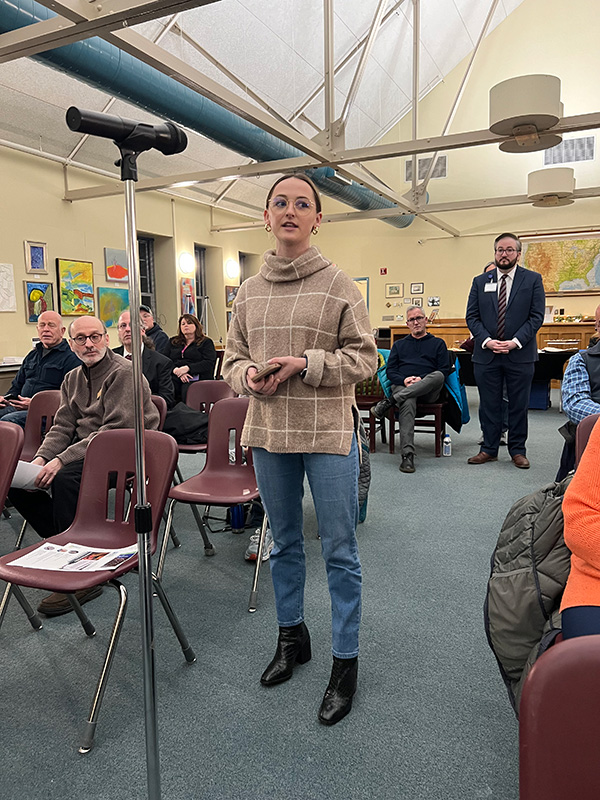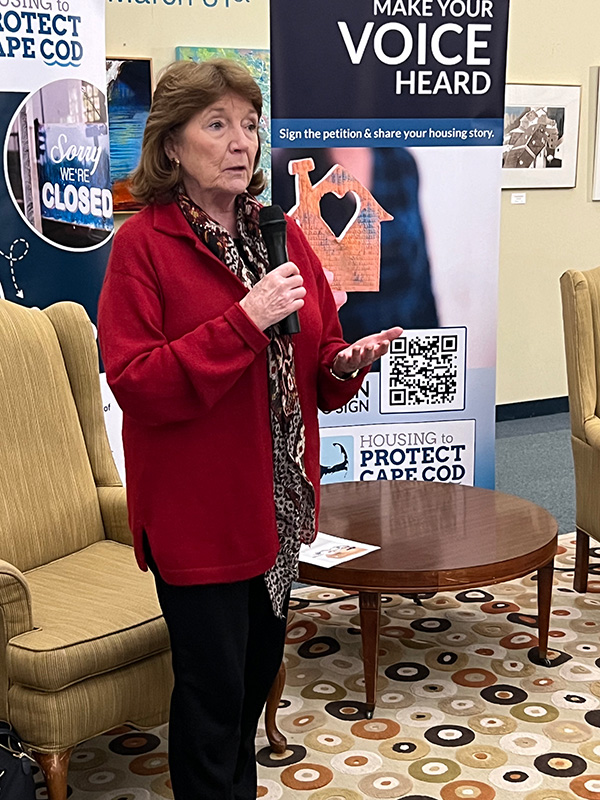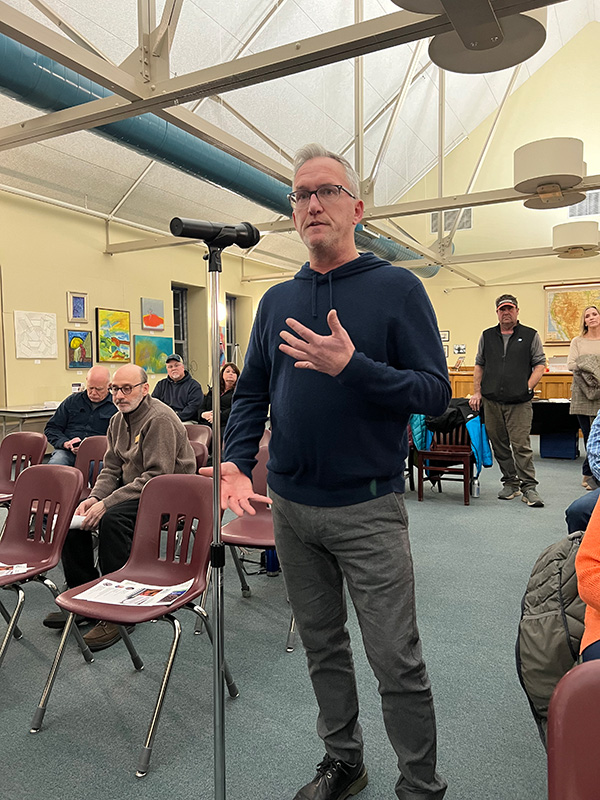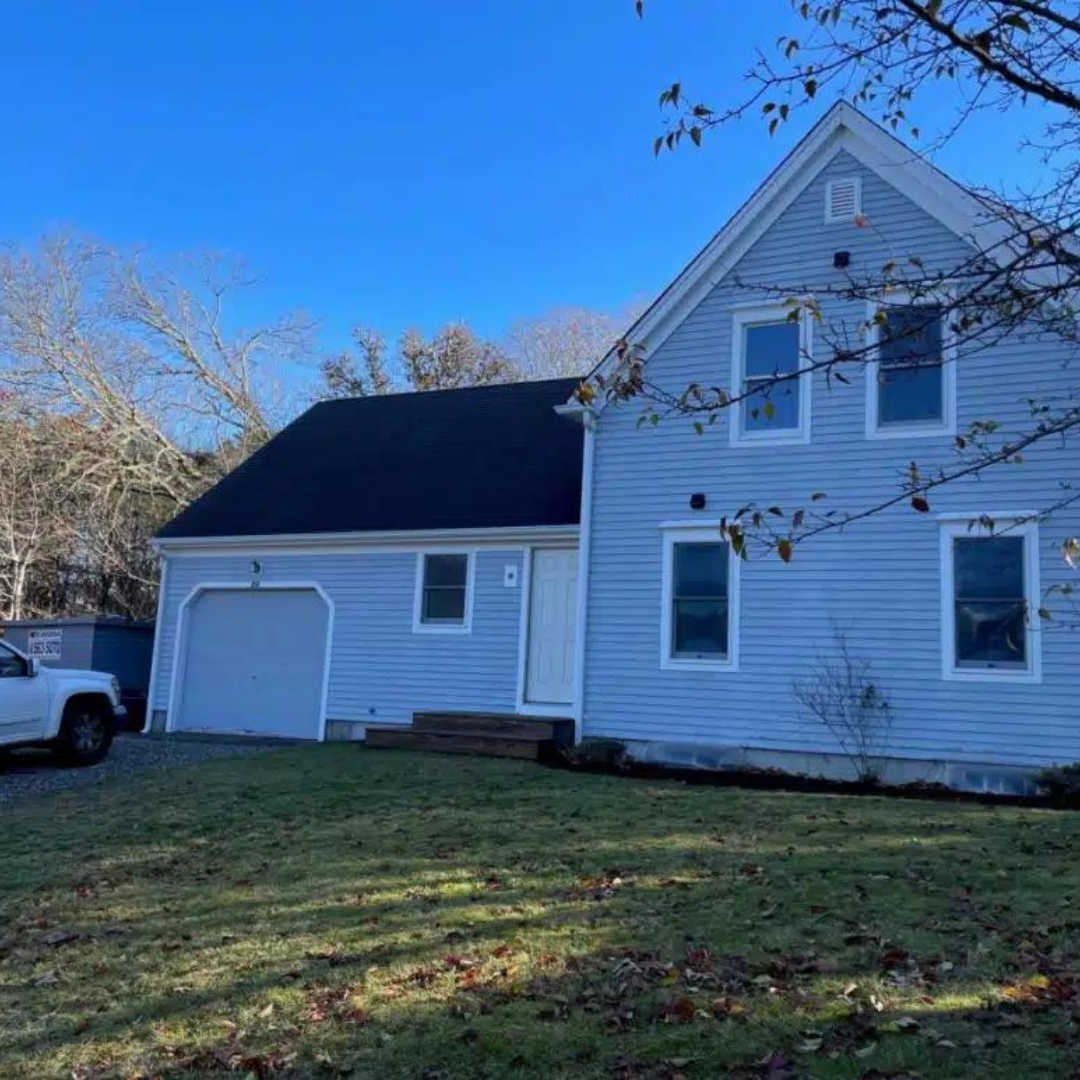Teachers, firefighters and other residents are being “priced out of paradise,” Alan Hall, director of facilities at Outer Cape Health, told a room of about 40 people at a recent Harwich town huddle. The solution to the housing crisis, according to other speakers, will require imagination and a lot of hard work.
The group had come together for the town’s second town huddle, which is a strategic meeting of residents who are interested in changing their town’s housing policies. The huddles are part of the Housing to Protect Cape Cod initiative – a grass roots initiative to protect and preserve the people of Cape Cod.
HPCC is helping to create town working groups that will build a strategic plan to educate residents about what’s happening in their towns and promote civic engagement around housing issues. In addition to Harwich, working groups are underway in Falmouth, Dennis and Yarmouth, and are in the planning stages in Bourne, Mashpee, Orleans and Barnstable.
Harwich’s first town huddle, attended by about 50 people, inspired quick action. Julie Kavanagh, a member of the town’s select board, heard multiple requests to create more opportunities for accessory dwelling units (ADUs) by removing restrictions. She asked Paul Halkiotis, the new town planner, to make it one of his first by-law changes. Wording is being finalized and they plan to present the proposed changes for approval at Harwich’s spring town meeting.
“I think about my long-term future and building my life here, and that’s just not an option.”
–math teacher Kali Lower

Discussion about the housing crisis continued at a second town huddle in early March.

Ryan Castle, CEO of the Cape and Islands REALTORS and a founding member of HPCC, cited the median cost for a single-family home in Harwich, which is $703,0000. A family would need to make more than $200,000 to afford a mortgage.
“What we’ve seen get built on the Cape is what’s been allowed for the last 20 to 30 years—single family homes,” he said. “We’re not going to build ourselves out of this. We have to strategize our way out.”
Joy Jordan, community engagement coordinator for the Monomoy Regional School District, said housing prices are making it increasingly difficult for the district to hire teachers. “You want folks who can put down stable roots,” she said. “Unfortunately, there are many families who want to stay here but simply can’t afford to.”
Knowing that, Bernadette Waystack said she felt guilty when she told her boss last spring that she planned to retire from her teaching job. “We’re very fortunate that they found the perfect fit to replace me, and she already lived here,” she said.
Fire chief Dave LeBlanc also said he finds it difficult to fill openings. He said he foresees hiring people who live off-Cape (as nearly 50 percent of the Cape’s workforce already does, according to a report by The Concord Group), but fears that once new fire fighters and EMTs are fully trained, they’ll look for work closer to home and he’ll have to hire someone else.
The housing crisis is also personal for LeBlanc. His two daughters are both debt-free and have savings but can’t afford to buy a home in Harwich.

Solving the problem will require a combination of regional and town-by-town approaches, said Castle. High school teacher Andrew Matheson suggested making it simpler to convert unused commercial spaces into housing. Halkiotis said he was looking into zoning changes to allow housing on the second or third floor of commercial buildings after getting the suggestion in an email from a resident. Another speaker suggested allowing tiny houses, shipping container houses and modular homes.
“There isn’t one solution to solve the problem; we have to be creative and consider all types of housing types to meet the needs of the community,” Ann Schiffenhaus, Housing Assistance’s director of community relations and advocacy told the group “We also have to keep moving forward and not give up when we hit a roadblock or fierce opposition.” She suggested that people vote in favor of funding and policies that can help solve the housing crisis in Harwich and across Cape Cod.
“We need people to step up,” Richard Waystack agreed, suggesting that people be housing advocates at town meeting. “We need people trained to be able to speak with honesty, with facts and without emotion.”
For more information on town working groups and huddles, contact us at advocacy@haconcapecod.org.


